Jim Russell, creator of ‘Marketplace,’ dies at 76

Russell
Jim Russell, a public media executive who led the creation and launch of Marketplace, died Tuesday following complications from a fall last month. He was 76.
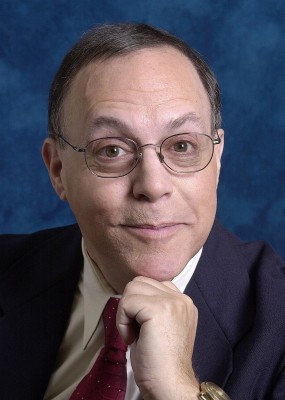
Russell spent decades in public broadcasting, first as a reporter and producer and later as an EP and programming consultant. He played a central role in the development of multiple programs, including Newton’s Apple, an educational TV series on science, and Weekend America, a short-lived American Public Media series.
Russell got his start in radio broadcasting as a student at American University in Washington, D.C. Early in his professional career, he covered the Vietnam War and the U.S. invasion of Cambodia for United Press International before joining NPR in 1971.
At NPR, he was one of the news organization’s first correspondents. He later contributed to the development of Morning Edition and became EP of All Things Considered.
Bill Siemering, NPR’s first director of programming, hired Russell to join the newsroom. At the time, NPR “didn’t have the journalistic heft that I thought we needed,” he said. Russell had “an impressive record of working in Vietnam. I thought that experience would really be helpful for the organization and for the staff, too.”
Former colleagues described Russell as a mentor with an eye for talent and a boss who set high standards. He cared deeply about public broadcasting and its mission, and he wasn’t afraid to take creative risks.
“He was thoroughly devoted to public media. And that was infectious,” said Jay Kernis, a producer at CBS Sunday Morning who worked with Russell at NPR in the 1970s. “He’s one of the people who created the high standards that made public radio what it is today.”
NPR’s first decade was a “very experimental time,” Kernis said. “We were making it up as we went along.” He recalled Russell’s openness to trying new ideas and willingness to talk through disagreements.
“His idea was … if it doesn’t work, we won’t put it on the air. But let’s try different ways to tell stories,” Kernis said.
Russell went on to have a 10-year stint in public television as VP and station director at KTCA/KTCI, now known as Twin Cities PBS. While there, he was involved in the creation of Newton’s Apple, a PBS-distributed children’s series about science hosted by Ira Flatow.
In 1988, he returned to public radio to create Marketplace, which went on to become APM’s signature show on business and economics. At that time, programs on business were “usually so dense and boring,” Russell recalled on his website, yet the topic of global business was important. “I felt there had to be a way to do it creatively, informatively, entertainingly,” he wrote.
David Brancaccio, now host and senior editor of Marketplace Morning Report, said Russell “took an enormous risk” when he hired Brancaccio as host of Marketplace at age 33.
Russell had a “reputation of being very intense,” Brancaccio said. But when Brancaccio started the job in 1993, Russell assured him that he would let him find his voice as host.
Russell told him,“‘I’m not going to get in your way, but I’m going to listen for the sound that you now own the show — that you’re relaxed and that the show is yours,’” Brancaccio said.
For the first few months, Russell didn’t give Brancaccio any feedback. “And then, one day after the Marketplace broadcast, he goes, ‘I can hear you own it now,’” Brancaccio said.
“When you’re finding your voice, it’s hard to give you advice on how to find your own voice,” he said. “I think Jim understood that. I’ve never seen anything like that before or since in my career.”
Russell “delighted in really big challenges, and he delighted in finding really great talent,” said John Barth, who worked closely with Russell as a senior producer during the startup of Marketplace. “He understood talent. He was very nurturing, but he would push pretty hard.”
Barth remembers development and launch of Marketplace as being “extremely difficult,” with long days, few staffers and a hastily built studio with a door that didn’t shut properly. During broadcast of the debut episode, Russell leaned against the door to prevent any sound problems, Barth said.
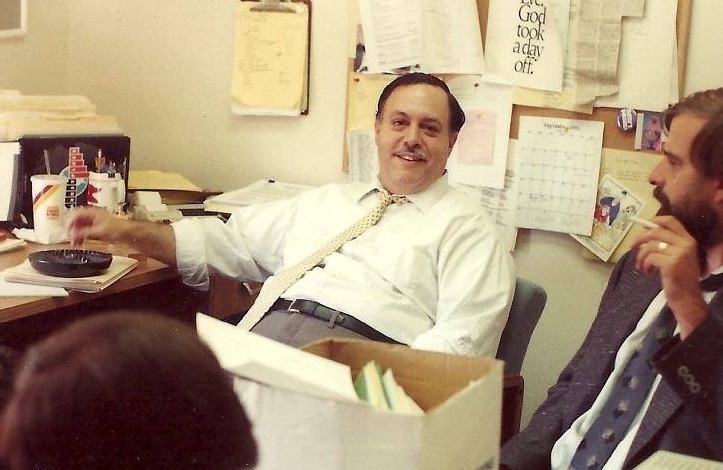
Russell was “up to his elbows in every detail” and “delighted in being in the editing booth,” Barth said.
Less than three months after the program’s debut, Russell told Barth the show had run out of funding and directed him to begin planning the final week of episodes.
“I was like, ‘You’re kidding, we just launched,’” Barth recalled. “He goes, ‘Yeah, I know, it’s a really bad situation.’”
Russell was able to secure a sponsorship from General Electric that kept Marketplace going. “That was all because of Jim hustling and working his connections to find the money,” Barth said. “That’s the kind of guy Jim was. It was never say die.”
Barth described Russell’s personality as “challenging. Difficult. Brilliant. He was a total large character, large personality,” Barth said. “And he never took no for an answer. … But Jim’s forceful and visionary nature is the reason there is a Marketplace.”
Russell later became SVP and GM of new program development at APM. One of his biggest projects was Weekend America, a national weekly news and arts program that he developed and launched as EP with a major grant from CPB. The series aired in national distribution from 2004–09.
In 2006, Russell started his own consultancy specializing in public radio programming. He marketed himself as the “Program Doctor” who could assist with developing new programs and improving long-running ones.
“He was always interested in how he could help folks at stations be better stewards of their airwaves,” said John Sutton, VP of audiences and revenue at WESA in Pittsburgh, who recalled working with Russell during his “Program Doctor” days. “It was a serious objective but always approached with good humor, grace and a touch of tough love.”
Ted Russell, Jim’s son, described him as “absolutely tireless and high-integrity. Anything that happened that he thought crossed an ethical line or a moral line, he just would fight out of all proportion to whatever the issue was, because he was that principled.”
Ted remembers going to the grocery store with his dad as a child. Ted tried to leave the shopping cart by the car rather than returning it. He recalls his dad telling him, “‘Go bring the cart back.’ I said, ‘Well, no one else is returning the cart.’ He said, ‘What they do says something about them. What we do says something about who we are. We are the kind of people who return the cart.’”
“What makes him so interesting and complex is on the one hand, he was so tough,” Ted said. “On the other hand, he had this deep, deep human compassion.”
Susan Stamberg, an NPR special correspondent and “founding mother” of the network, met Russell when he was a student at American University, before they worked together at NPR. In an email to Current, she described him as a “brilliant strategist, a problem solver, generous to his friends, fierce to his enemies. His wicked sense of humor was delivered with a twinkle.”
“His head and his heart were over-sized, as were his ambitions and competitiveness,” Stamberg wrote. She learned “much” from Russell over the years, “and when I needed it, relied on his criticism as well as his praise,” she said.
“I just stopped typing to think about him, and could almost hear him saying, ‘enough Susan, stop the rambling. Get on with it,’” she added.
Along with his son Ted, of Pacific Palisades, Calif., Russell is survived by his daughters Jennifer Sturgeon of San Clemente, Calif., and Kimberly Thomas of San Diego; his former spouse Kathleen; his siblings Katherine Russell of San Francisco and Robert Russell of Colfax, Wash.; and six grandchildren.




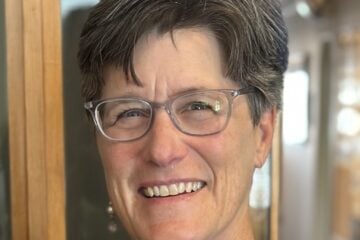

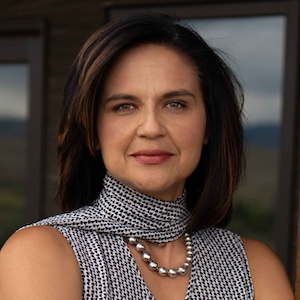
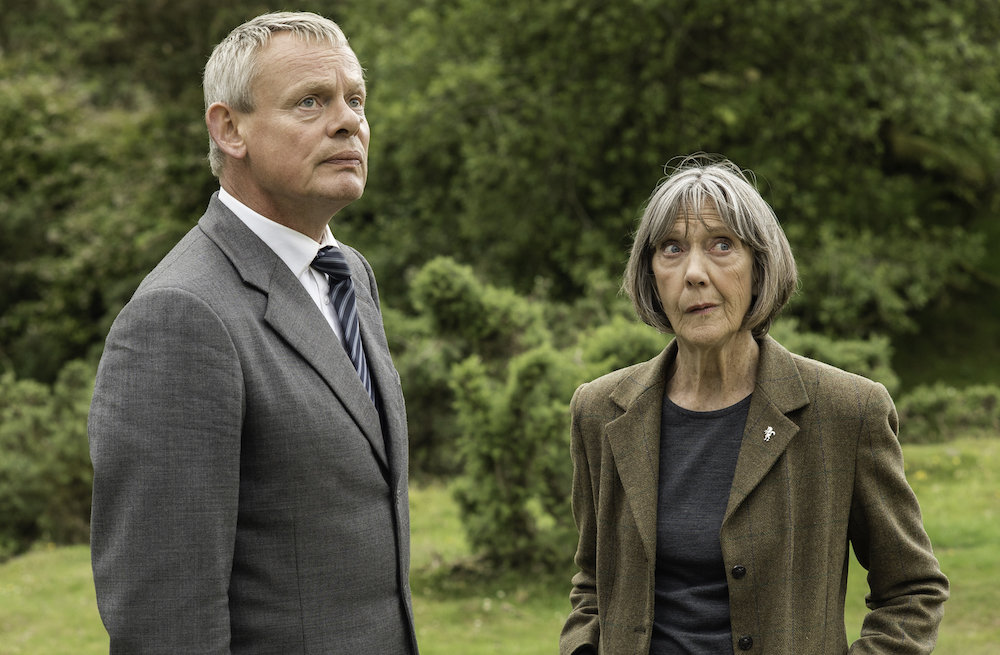

Jim was fun to work with (most of the time) and I think he’d like it as simply put as that!
Had fun, funny times at Weekend America—really brilliant staff to create with!
Jim was the executive producer of a pilot at APM about parenting in 2007 called “How’s the Family?” I am grateful for all that I learned from him and for his tenacious spirit.